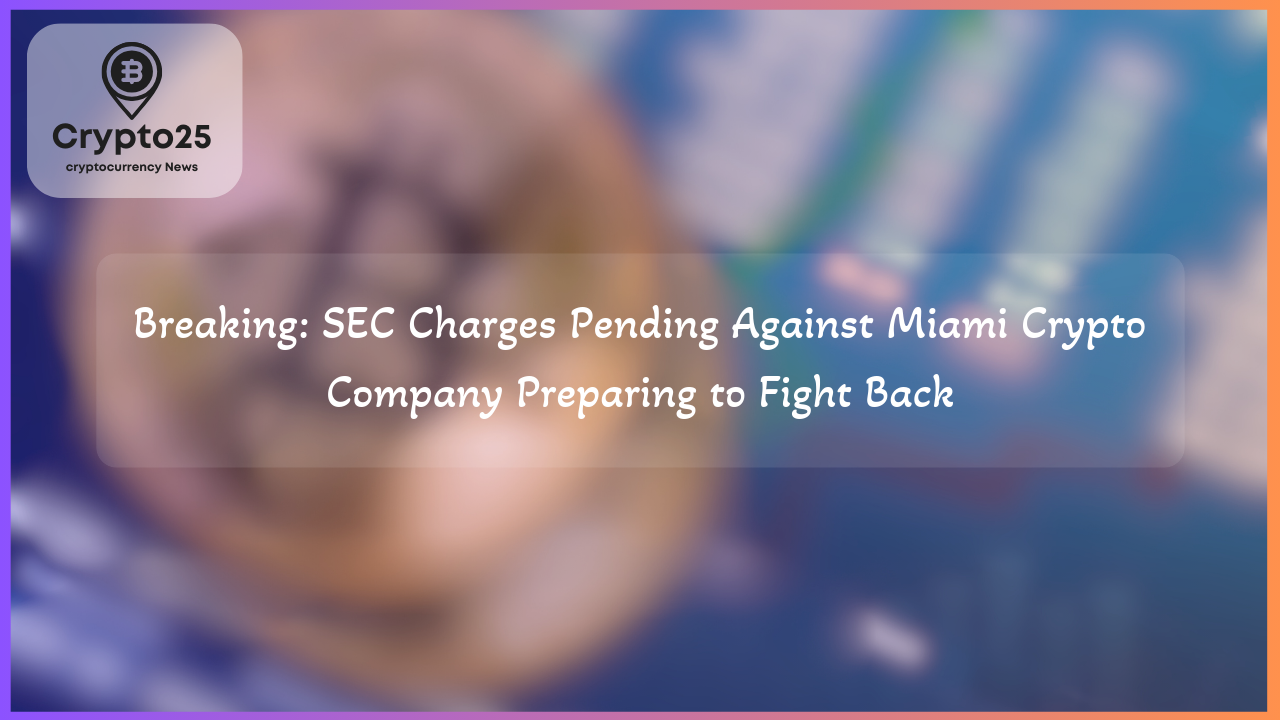
Crypto investment firm Unicoin is gearing up for a legal battle against the U.S. Securities and Exchange Commission (SEC) after receiving allegations of serious securities law violations. The Miami-based company, renowned for its “asset-backed” cryptocurrency UNIC, is taking on Wall Street’s regulatory watchdog as CEO Alex Konanykhin vows to clear the firm’s name. This case highlights the ongoing regulatory scrutiny faced by crypto firms worldwide.
## SEC’s Allegations Against Unicoin: A Closer Look at the Crypto Legal Landscape
The SEC’s notice to Unicoin signals an intensification of regulatory oversight in the cryptocurrency industry. According to allegations, Unicoin violated federal securities laws by engaging in activities such as unregistered token airdrops and misleading investors about its compliance and asset backing. Specifically, the SEC claims that Unicoin’s failure to verify recipients’ accredited investor status during token distribution violated critical antifraud provisions. Additionally, accusations of inflating token sales data and falsely claiming ownership of real estate properties have further complicated Unicoin’s defense.
Unicoin intends to fight these claims, asserting its three-year track record of compliance with SEC financial reporting regulations. CEO Alex Konanykhin categorically denies the allegations and frames the enforcement action as politically motivated. Unicoin’s case underscores the evolving regulatory environment, where crypto companies must navigate stringent standards while battling perceptions of industry-wide noncompliance.
## Unicoin’s CEO Responds to SEC Claims and Plans Legal Recourse
Alex Konanykhin, Unicoin’s outspoken CEO, has criticized the SEC’s approach, framing it as “unfair persecution” of a compliant entity. In an exclusive interview, Konanykhin revealed the firm’s decision to reject settlement talks with the SEC, instead opting for a courtroom battle to defend its practices. Highlighting the reputational and financial damage caused by the regulatory probe, he accused SEC “staff holdovers from the Gensler era” of driving the case to salvage earlier enforcement mandates.
Konanykhin’s public dissent against the agency introduces a narrative of resistance by crypto leaders against alleged excessive regulatory measures. His statement also brings into focus broader concerns of potential overreach, as scrutiny persists despite shifts in leadership at the SEC. Many in the cryptocurrency community may see this case as a precedent for future disputes between regulators and crypto firms.
| Title | Details |
|---|---|
| Market Capitalization of Crypto Industry | $1.2 Trillion |
| SEC Enforcement Actions (2020–2023) | 35 High-Profile Cases |
By leveraging such critical discussions, the crypto sector’s advocates hope to enhance collaboration while safeguarding innovation.
## The Implications for Crypto Regulation and Future Compliance
While Unicoin is the latest in a string of crypto companies to face regulatory action, this case underlines the global challenges of regulatory uncertainty in the blockchain sector. The SEC’s allegations against Unicoin reflect the ongoing tension between a burgeoning industry and traditional regulatory frameworks. Cases like these raise awareness of the necessity for clear compliance standards tailored to decentralized finance and blockchain technologies.
At a structural level, regulators are now considering updated legal frameworks to balance innovation with consumer protection. In the U.S., the debate over crafting a unified crypto regulatory standard has gained momentum under administrations with differing outlooks on cryptocurrency’s role in the financial ecosystem. Investors and crypto firms alike are watching closely as the outcome of Unicoin’s battle may set a legal precedent that shapes future compliance obligations.
As Unicoin continues to navigate legal hurdles, the broader crypto audience is keenly observing whether decentralized finance will find its place within traditional regulatory structures or if these disputes will pave the way for more collaborative frameworks.
